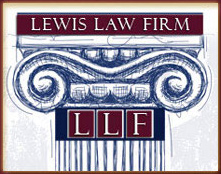Source: the Lancet
Apparently, it’s more likely true than not. A study published in the respected medical journal, the Lancet, Long-term effect of aspirin on cancer risk in carriers of hereditary colorectal cancer: an analysis from the CAPP2 randomised controlled trial indicates that rates of colon cancer are reduced in regular aspirin consumers. The stated aim of the CAPP2 trial was, “[T]o investigate the antineoplastic effects of aspirin and a resistant starch in carriers of Lynch syndrome, the major form of hereditary colorectal cancer.”

Results of Study
861 participants were randomly assigned to aspirin or aspirin placebo. At a mean follow-up of 55·7 months, 48 participants had developed 53 primary colorectal cancers (18 of 427 randomly assigned to aspirin, 30 of 434 to aspirin placebo). Intention-to-treat analysis of time to first colorectal cancer showed a hazard ratio (HR) of 0·63 (95% CI 0·35—1·13, p=0·12). Poisson regression taking account of multiple primary events gave an incidence rate ratio (IRR) of 0·56 (95% CI 0·32—0·99, p=0·05). For participants completing 2 years of intervention (258 aspirin, 250 aspirin placebo), per-protocol analysis yielded an HR of 0·41 (0·19—0·86, p=0·02) and an IRR of 0·37 (0·18—0·78, p=0·008). No data for adverse events were available postintervention; during the intervention, adverse events did not differ between aspirin and placebo groups.
In English
600 mg aspirin per day for a mean of 25 months substantially reduced cancer incidenceafter 55·7 months in carriers of hereditary colorectal cancer. Further studies are needed to establish the optimum dose and duration of aspirin treatment. For all patients in the trial, 600 milligrams of aspirin every day developed 19 tumours compared to 34 tumours in the other “control” group, a reduction of 44%. When the researchers looked at just those patients who took the medication for at least two years the reduction was 63%. While the study focused upon a group of patients who were “at risk” for colon cancer because of genetics, the results are fairly significant.
The study was funded by: the European Union; Cancer Research UK; Bayer Corporation; National Starch and Chemical Co; UK Medical Research Council; Newcastle Hospitals trustees; Cancer Council of Victoria Australia; THRIPP South Africa; The Finnish Cancer Foundation; SIAK Switzerland; and, of course, by Bayer Pharma (Makers of Bayer Aspirin).
Posted by: Gayle R. Lewis, Esquire
